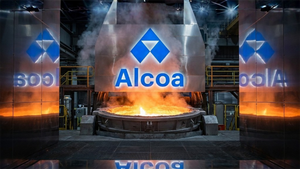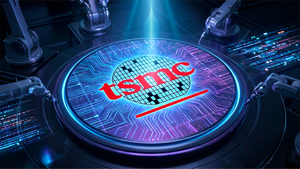Financial News
Bragar Eagel & Squire, P.C. Reminds Investors That Class Action Lawsuits Have Been Filed Against Boeing, Brooge, Cassava, and Amylyx and Encourages Investors to Contact the Firm
NEW YORK, Feb. 29, 2024 (GLOBE NEWSWIRE) -- Bragar Eagel & Squire, P.C., a nationally recognized shareholder rights law firm, reminds investors that class actions have been commenced on behalf of stockholders of The Boeing Company (NYSE: BA), Brooge Energy Limited (NASDAQ: BROG), Cassava Sciences, Inc. (NASDAQ: SAVA), and Amylyx Pharmaceuticals, Inc. (NASDAQ: AMLX). Stockholders have until the deadlines below to petition the court to serve as lead plaintiff. Additional information about each case can be found at the link provided.
The Boeing Company (NYSE: BA)
Class Period: October 23, 2019 - January 24, 2024
Lead Plaintiff Deadline: April 1, 2024
Boeing, headquartered in Arlington, Virginia, is one of the largest aerospace companies in the world. Its Commercial Airplanes Segment is a leading producer of commercial aircraft and offers a family of commercial jetliners including its 737 MAX. Approximately five years ago, two Boeing 737 MAX 8 planes were involved in fatal crashes caused by malfunctions due to design flaws in the 737 MAX’s flight control software. The first crash occurred in October 2018 and the second crash occurred in March 2019 killing a total of 346 people and leading to 737 MAX planes being grounded from March 2019 to December 2020.
According to the filed complaint, the Class Period starts on October 23, 2019, when Defendants boasted that Boeing was making progress towards the safe return to service of the 737 MAX. Throughout the Class Period, Defendants continued to assure investors that Boeing was laser-focused on safety and quality. Defendants also claimed that Boeing did not make trade-offs between safety and profit, and that safety was Boeing’s priority.
Also according to the filed complaint, unbeknownst to investors, statements such as those above were false and misleading because Boeing failed to disclose that it had been prioritizing its profits over safety, which led to poor quality control standards in the production of its commercial aircrafts such as the 737 MAX, resulting in a heightened risk of manufacturing flaws which could render the Company’s new airplanes unsafe. This very risk had materialized during the Class Period. These false and misleading statements caused Boeing stock to trade at artificially inflated prices during the Class Period.
Also, according to the filed complaint, it took a near disaster to expose this heightened safety risk. The public first learned about it on January 5, 2024 when a panel called a “door plug” flew out of the side of a 737 MAX 9 (a variant of 737 MAX) during Alaska Airlines Flight 1282. This left a gaping hole in the plane’s main cabin, feet from where passengers were sitting. Over the next few weeks, investigations into the incident continued and problems with such door plugs on other 737 MAX planes were discovered including loose bolts holding the door plugs in place, further revealing the Company’s manufacturing and production missteps and leading to the grounding of many 737 MAX 9 planes.
In reaction to these and other related disclosures, Boeing’s stock price plummeted from $249.00 on January 5, 2024 to $201.88 on January 25, 2024, a $47.12 per share or 18.9% decline.
For more information on the Boeing class action go to: https://bespc.com/cases/BA
Brooge Energy Limited (NASDAQ: BROG)
Class Period: November 25, 2019 - December 21, 2023
Lead Plaintiff Deadline: April 5, 2024
According to the lawsuit, defendants throughout the Class Period made materially false and/or misleading statements and/or failed to disclose that: (1) Brooge materially overstated its revenues because it never received any revenues from BIA, as well as another fictitious customer; (2) Brooge engaged in a complex pattern of payments with BIA to create the illusion of revenues from BIA and another customer that had no knowledge of the fraud; (3) Brooge intentionally lied to its auditors and the Securities and Exchange Commission about its fraudulent activities; (4) Brooge lacked internal controls; and (5) as a result, Defendants’ statements about its business, operations, and prospects, were materially false and misleading and/or lacked a reasonable basis at all relevant times.
For more information on the Brooge class action go to: https://bespc.com/cases/BROG
Cassava Sciences, Inc. (NASDAQ: SAVA)
Class Period: August 18, 2022 - October 12, 2023
Lead Plaintiff Deadline: April 2, 2024
Cassava is a clinical-stage biotechnology company. The Company's lead therapeutic drug candidate is PTI-125 (or "simufilam"), a small molecule drug for the proposed treatment of Alzheimer's disease.
In March 2020, Cassava initiated a long-term, open-label study to evaluate the long-term safety and tolerability of simufilam 100 mg twice daily for 12 or more months in patients with Alzheimer's disease and to assess exploratory efficacy endpoints, such as changes in cognition, and biomarkers.
Then, in August 2021, a Citizen Petition requested the United States Food & Drug Administration ("FDA") to halt any phase 3 trials of simufilam due to concerns regarding data manipulation. Specifically, the Citizen Petition referenced "grave concerns about the quality and integrity of the laboratory-based studies surrounding this drug candidate and supporting the claims for its efficacy."
However, in response, Cassava denied the allegations in the Citizen Petition and instead touted the effectiveness of simufilam and the efficacy of the Company's research programs. Indeed, in a press release published shortly after the FDA received the Citizen Petition, Cassava stated that "[t]he Company stands behind its science, its scientists and its scientific collaborators." Thereafter, Cassava continued to maintain its defense of simufilam even as criticisms of simufilam were revealed from additional sources and academic journals such as Neurobiology of Aging and the Journal of Neuroscience issued "expressions of concern" regarding the efficacy of the drug.
On October 12, 2023, the peer-reviewed academic journal Science reported that Professor Hoau-Yan Wang ("Dr. Wang"), a City University of New York researcher associated with the research program for simufilam, had been investigated by university officials for possible data manipulation. Although the investigative committee did not have access to the raw data at issue and thus was unable to confirm that data manipulation had occurred, members made their conclusion based on "long-standing and egregious misconduct in data management and record keeping by Dr. Wang" and "found evidence highly suggestive of deliberate scientific misconduct" by Dr. Wang.
On this news, Cassava's stock price fell $2.68 per share, or 15.28%, to close at $14.86 per share on October 13, 2023.
As a result of Defendants' wrongful acts and omissions, and the precipitous decline in the market value of the Company's securities, Plaintiff and other Class members have suffered significant losses and damages.
The Complaint alleges that, throughout the Class Period, Defendants made materially false and/or misleading statements and failed to disclose material adverse facts about the Company's business, operations, and prospects. Specifically, Defendants made false and/or misleading statements and/or failed to disclose that: (i) the Company failed to maintain adequate and effective data management controls and procedures related to its drug research programs; (ii) as a result, the data published in support of simufilam were susceptible to manipulation to overstate the drug's effectiveness; (iii) accordingly, Cassava had misrepresented the efficacy of its research programs and the clinical and/or commercial prospects of simufilam; (iv) all of the foregoing, once revealed, was likely to subject the Company to significant financial and/or reputational harm; and (v) as a result, the Company's public statements were materially false and misleading at all relevant times.
For more information on the Cassava class action go to: https://bespc.com/cases/SAVA
Amylyx Pharmaceuticals, Inc. (NASDAQ: AMLX)
Class Period: November 11, 2022 - November 8, 2023
Lead Plaintiff Deadline: April 9, 2024
Amylyx is a commercial-stage biotechnology company that engages in the discovery and development of treatments for Amyotrophic Lateral Sclerosis ("ALS"), also known as Lou Gehrig's disease, and other neurodegenerative diseases. The Company's products include, among others, AMX0035 (commercially referred to as "RELYVRIO" in the U.S.), a dual UPR-Bax apoptosis inhibitor composed of sodium phenylbutyrate and taurursodiol, for the treatment of ALS in adults in the U.S.
Following the U.S. Food and Drug Administration's September 2022 approval of RELYVRIO for the treatment of ALS in adults in the U.S., Defendants consistently touted the drug's commercial prospects and prescription rate.
The Complaint alleges that, throughout the Class Period, Defendants made materially false and misleading statements regarding the Company's business, operations, and prospects. Specifically, Defendants made false and/or misleading statements and/or failed to disclose that: (i) Defendants had overstated RELYVRIO's commercial prospects; (ii) patients were discontinuing treatment with RELYVRIO after six months; (iii) the rate at which new patients were starting treatment with RELYVRIO was decreasing; (iv) accordingly, Defendants had also overstated RELYVRIO's prescription rate; (v) Defendants attempted to hide the foregoing negative trends from investors and the market by blocking analysts from viewing RELYVRIO's prescription data; and (vi) as a result, Defendants' public statements were materially false and misleading at all relevant times.
On November 9, 2023, Amylyx issued a press release announcing its third quarter ("Q3") 2023 financial results, including Q3 GAAP earnings per share of $0.30, missing consensus estimates by $0.12. That same day, on a conference call with investors and analysts to discuss these results, Company management revealed that, despite "a [purported] steady cadence of new prescriptions written in" Q3 for RELYVRIO, Amylyx's "results were impacted by a number of factors" including a "slowdown in net adds" for RELYVRIO in Q3, which "was primarily driven by increased discontinuations for a variety of reasons", with only "60% of people taking RELYVRIO remain[ing] on therapy six months after initiation in the U.S."
Also on November 9, 2023, Investor's Business Daily published an article addressing the Company's disappointing financial results (the "IBD Article"). The IBD Article cited an Evercore ISI analyst, who questioned Amylyx's assertion that the number of new patients starting treatment with RELYVRIO was "steady", noting that his math suggested otherwise and that Amylyx had blocked analysts from viewing RELYVRIO's prescription data in the summer of 2023. The analyst also stated that, "[k]nowing that [Amylyx's] stock had underperformed in 2023 already, management could have communicated the discontinuations dynamic much earlier," and that the "[s]tock move today in a bad biotech tape and fund performance doesn't help investor confidence among folks that have held onto the stock."
Following these disclosures and the publication of the IBD Article, Amylyx's stock price fell $5.74 per share, or 31.89%, to close at $12.26 per share on November 9, 2023.
For more information on the Amylyx class action go to: https://bespc.com/cases/AMLX
About Bragar Eagel & Squire, P.C.:
Bragar Eagel & Squire, P.C. is a nationally recognized law firm with offices in New York, California, and South Carolina. The firm represents individual and institutional investors in commercial, securities, derivative, and other complex litigation in state and federal courts across the country. For more information about the firm, please visit www.bespc.com. Attorney advertising. Prior results do not guarantee similar outcomes.
Contact Information:
Bragar Eagel & Squire, P.C.
Brandon Walker, Esq.
Marion Passmore, Esq.
(212) 355-4648
investigations@bespc.com
www.bespc.com

More News
View More




Recent Quotes
View MoreQuotes delayed at least 20 minutes.
By accessing this page, you agree to the Privacy Policy and Terms Of Service.




